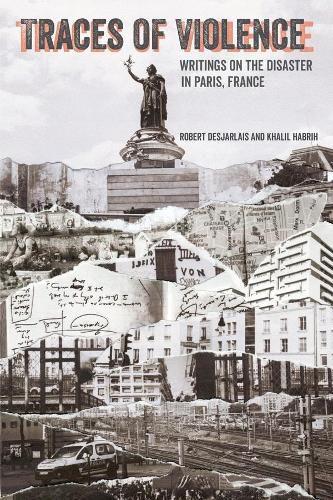Readings Newsletter
Become a Readings Member to make your shopping experience even easier.
Sign in or sign up for free!
You’re not far away from qualifying for FREE standard shipping within Australia
You’ve qualified for FREE standard shipping within Australia
The cart is loading…






In this highly original work, Robert Desjarlais and Khalil Habrih present a dialogic account of the lingering effects of the terroristic attacks that occurred in Paris in November 2015. Situating the events within broader histories of state violence in metropolitan France and its colonial geographies, the authors interweave narrative accounts and photographs to explore a range of related phenomena: governmental and journalistic discourses on terrorism, the political work of archives, police and military apparatuses of control and anti-terror deterrence, the histories of wounds, and the haunting reverberations of violence in a plurality of lives and deaths. Traces of Violence is a moving work that aids our understanding of the afterlife of violence and offers an innovative example of collaborative writing across anthropology and sociology.
$9.00 standard shipping within Australia
FREE standard shipping within Australia for orders over $100.00
Express & International shipping calculated at checkout
In this highly original work, Robert Desjarlais and Khalil Habrih present a dialogic account of the lingering effects of the terroristic attacks that occurred in Paris in November 2015. Situating the events within broader histories of state violence in metropolitan France and its colonial geographies, the authors interweave narrative accounts and photographs to explore a range of related phenomena: governmental and journalistic discourses on terrorism, the political work of archives, police and military apparatuses of control and anti-terror deterrence, the histories of wounds, and the haunting reverberations of violence in a plurality of lives and deaths. Traces of Violence is a moving work that aids our understanding of the afterlife of violence and offers an innovative example of collaborative writing across anthropology and sociology.